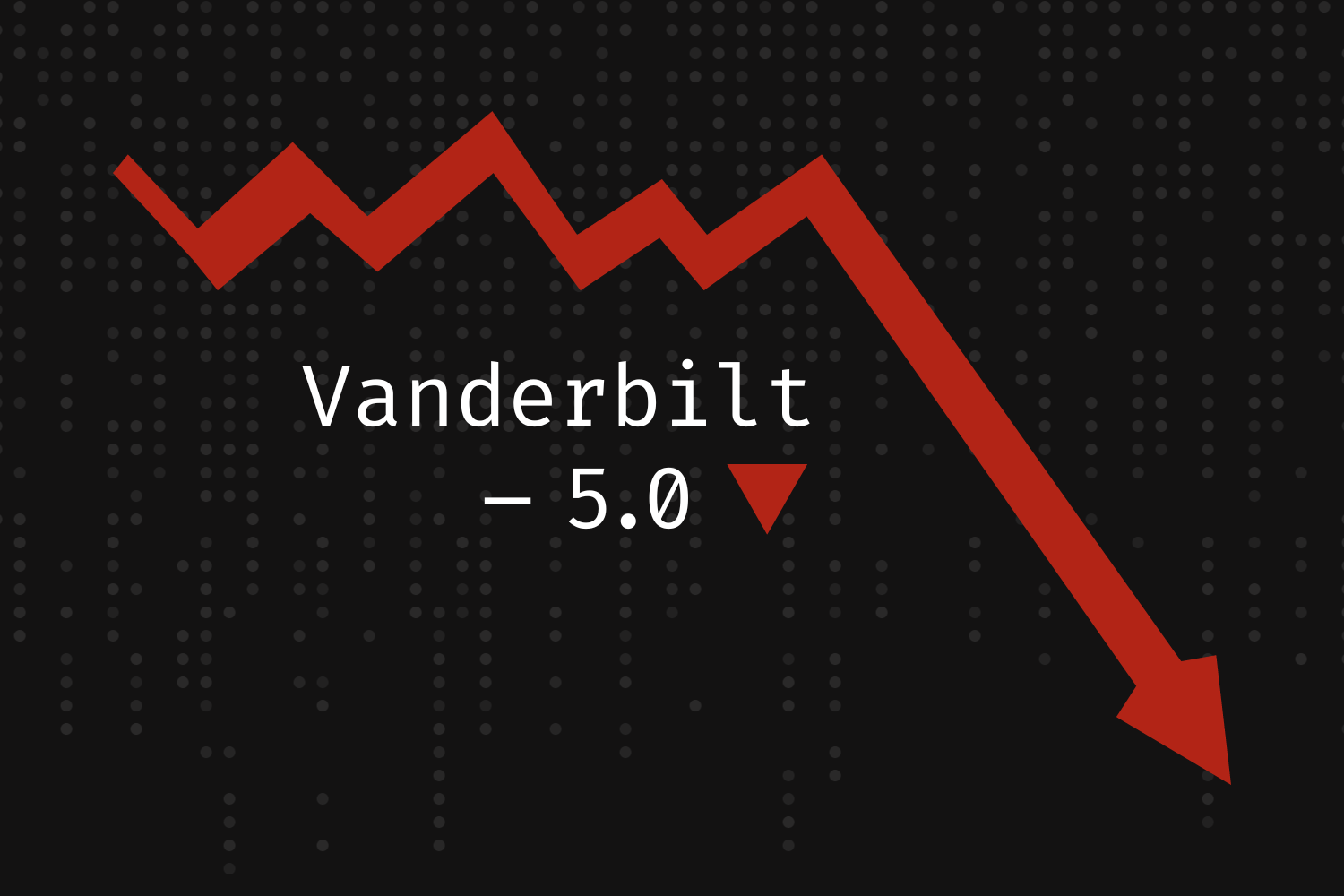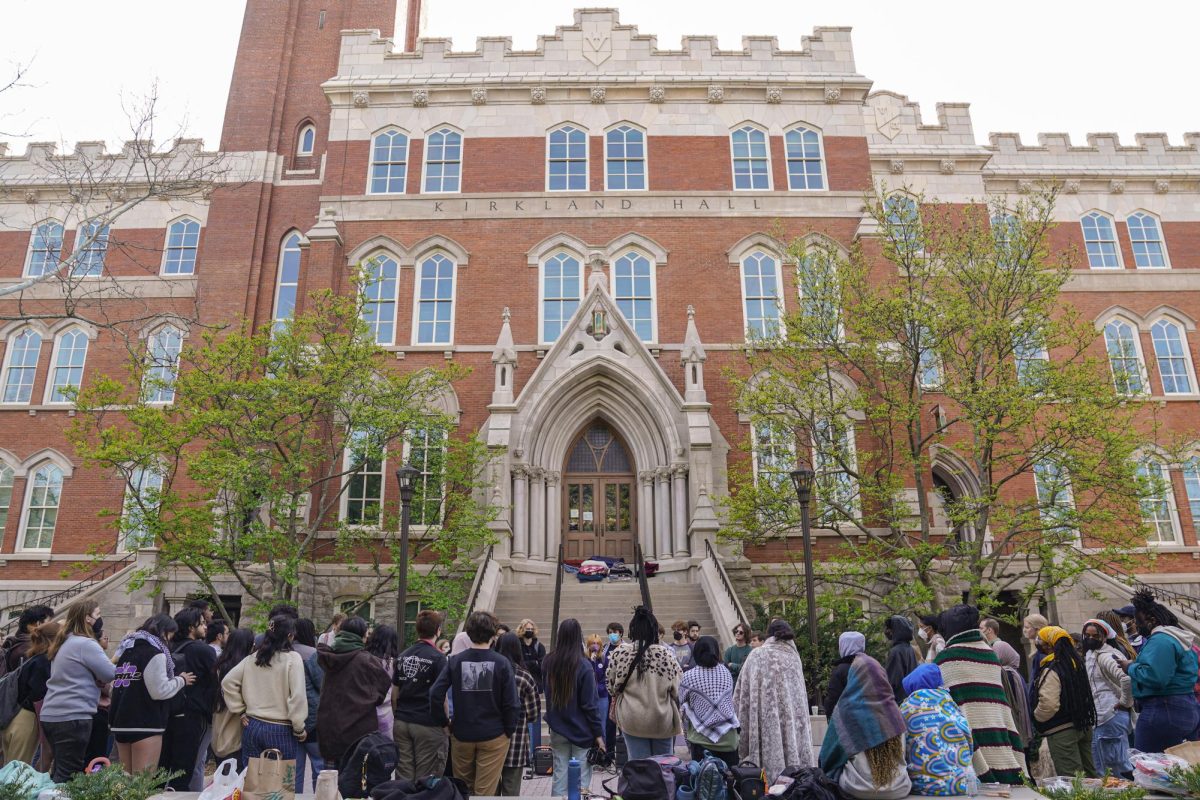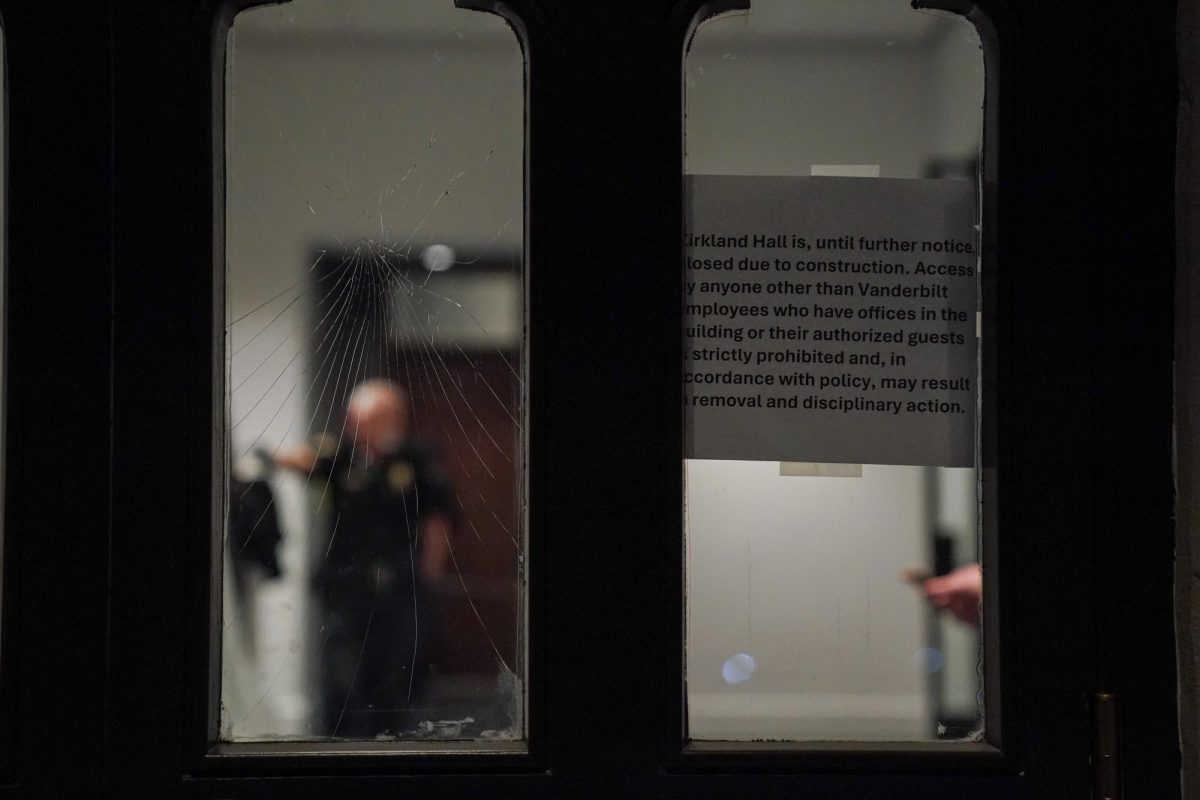On one fateful day, Vanderbilt’s world was flipped upside down when the U.S. News 2024 Best National College ranking was released. I woke up that morning to a mass outcry by students over Vanderbilt’s not-so-graceful exit out of top-15 status and pitiful entrance into the dreaded top-20. Fizz — an anonymous, campus-specific social media forum — was overflowing with outraged students expressing their frustrations with Vanderbilt’s drop to No. 18.
“This is now going to be one of those ‘touchy’ subjects to avoid during Thanksgiving dinner. Politics, religion and now, the U.S. News rankings,” one post reads.
Another poster even jokingly suggested the need for a mourning period, expressing that classes should be canceled as students grieve the death of Vanderbilt being a T-15 school.
“Putting in my transfer application after this #18 ranking,” another user added.
After transferring from a lower-ranked university, witnessing Vanderbilt’s competitive side has been a culture shock.
Although these posts may initially seem unserious and rather humorous, students were truly upset by this slip in ranking — and they weren’t the only ones. Chancellor Daniel Diermeier and Provost C. Cybele Raver sent an email to students, alumni and faculty members addressing the university’s drop in rank. Some could call it an explanation, others could call it a critique of U.S. News’ change in methodology, but I would call it damage control. The email reassured our community that Vanderbilt is “stronger than at any time in its history” and that the drop in rank was “entirely due to changes in U.S. News’ methodology,” a sentence that was underlined for emphasis. The pair listed other prestigious private universities that had also experienced significant drops and highlighted public universities that had leaped ahead in the rankings. After rattling off these rank movements, the pair summarized their thoughts in one jarring sentence: “U.S. News’ change in methodology has led to dramatic movement in the rankings overall, disadvantaging many private research universities while privileging large public institutions.”
There is something tone-deaf and inherently classist and elitist about this public outrage over dropping five spots in an arbitrary collegiate ranking. Vanderbilt boldly insinuates that the “privileging” of public universities — which are arguably more accessible — is unfair to private universities. For an elite, private institution like Vanderbilt to make such a statement implicitly enforces the idea that private universities should be ranked higher due to their exclusivity — which is partially due to ingrained inaccessibility. The toxic exclusivity of these schools extends further than purely academic selectivity. Legacy status is taken into consideration during admissions at 78% of America’s top private universities, creating a barrier for children of families who did not have the means or were not allowed to attend these universities. On the other hand, only 15% of public universities use such a metric. The cost of attendance for private universities can also be over two times more than at public universities. Although Vanderbilt boasts itself as a dedicated equal opportunist and plasters their diverse student body on every ounce of marketing, the refusal to acknowledge its position of privilege and role in collegiate elitist culture raises questions of what this university truly values.
Vanderbilt’s reputation is not tarnished due to its drop in ranking, but rather by the university’s response to the situation.
Embedded within Diermeier and Raver’s bitter tone, the pair also critiqued how the new criteria give more weight to social mobility, including a school’s percentage of Pell Grant recipients and first-generation students.
“Students from all backgrounds succeed at Vanderbilt at a higher rate than at many other institutions, but because Vanderbilt’s overall percentage of Pell and first-generation students is lower than at many state institutions, U.S. News’ metric for Vanderbilt is lower, affecting our ranking,” the email reads.
To me, large numbers of recipients attending an institution reflect a commitment to serving students in the most need; these institutions should be praised. The pair’s frustration toward increased recognition for institutions with many Pell Grant recipients is simply because this system doesn’t benefit Vanderbilt. It’s not that Vanderbilt doesn’t serve disadvantaged students, the pair argue, it’s that the university has a generous, internal financial aid program — Opportunity Vanderbilt, lowering the number of students who receive federal financial assistance. He argues that the data regarding social mobility is inaccurate and does not account for Opportunity Vanderbilt, putting the university at yet another disadvantage.
It seems that this drop in rank runs deeper than a pretentious joke — it reveals the inescapable toxicity of prestigious universities. A drop in rank means a drop in intelligence, dedication and worth to many people at Vanderbilt.
To be upset about and invested in a change in public perception of an institution you value is understandable. To feel disappointment and frustration about a change in methodology — that may not be based on entirely accurate data — causing a shift in the status quo is understandable. To have pride in your accomplishments and in the institution of which you are a part is understandable. Although Diermeier and Raver present some valid critiques about methodological changes, a bigger issue presents itself clearly: the line between pride and arrogance has been crossed. Vanderbilt’s reputation as it stands is not tarnished due to its drop in ranking, but rather by administrators’ and students’ response to the situation.
To be this upset about a five-point drop in rank is to be upset by the dismantling of elitist institutions and hierarchies. Traditionally, “top” universities like Vanderbilt have too long championed prestige just on the basis of the exceptional academic merit of their students and faculty, excluding how access to resources plays a role in educational quality and opportunity. It is obvious that the way we as a community present ourselves is a priority, but, in an attempt to magnify and preserve an esteemed reputation, we nullified that goal.
Vanderbilt was always my dream school. In promotional materials, the university does an excellent job of projecting its high-caliber reputation and high rank among colleges with the happiest students. It preaches equal opportunity for academic success for students of all backgrounds. Vanderbilt’s social media is filled with photos of smiling, perfectly diverse faces, and it boasts its 3:1 squirrel-to-student ratio. With a cursory glance at the university’s online presence, there is little reflection of the stress and pressure that comes with attending a top university. Even to an eager transfer applicant, Vanderbilt looked like the place to be: a place where the students and faculty were not elitist or pretentious and where well-being was embraced and valued.
After transferring from a lower-ranked university, witnessing Vanderbilt’s competitive side has been a culture shock. Vanderbilt’s clubs can seem more selective than many American colleges and require multiple rounds of applications and interviews; I struggled to find clubs to join at all at my former university. In stark contrast to where I began my undergraduate years, Vanderbilt’s campus is plastered with advertisements and posters boasting the university’s happiest school rank and status among the nation’s most elite colleges. Although I sought a higher level of academic rigor and focus on professional and personal achievement when transferring, I naively neglected the fact that such goals are inescapably accompanied by a hyper-prioritization of public image and prestige.
When I arrived on campus this August, I found the culture of parading and internalizing the prestige of the university to be unexpected and jarring. To witness this much debate and genuine concern over something as arbitrary as going from a top-15 university to a top-20 university is ridiculous. It seems that this drop in rank runs deeper than a pretentious joke — it reveals the inescapable toxicity of prestigious universities. A drop in rank means a drop in intelligence, dedication and worth to many people at Vanderbilt. Somehow, something as minute as dropping five spots on a college-rank website shattered this university’s morale within hours of its release. Diermeier and Raver insist that Vanderbilt has never been stronger, but I’d beg to differ.













